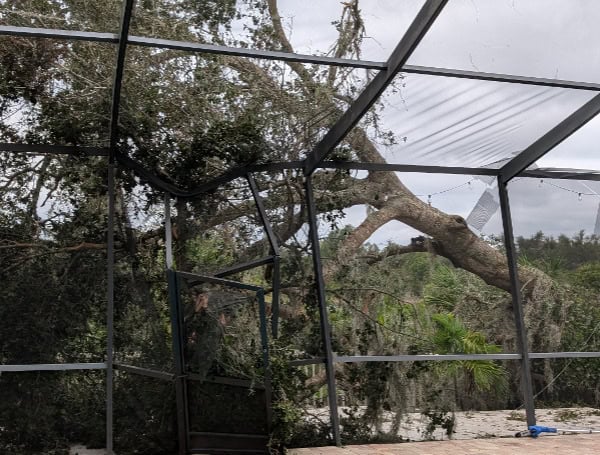Hurricane season brings stress for homeowners, as storms can quickly turn concerns into harsh realities. Many count on insurance to recover from damage, but sorting through the fine print in policies often adds confusion. Key exclusions, like flooding, can catch homeowners off guard, and unclear communication from insurers leaves many without answers when they need them most.
Learning how hurricane claims work reveals unexpected challenges, from hidden policy clauses to undervalued claims. Preparing for these hurdles helps homeowners protect their interests and improve their chances of fair compensation after a storm.
Examining Common Issues with Hurricane Insurance Policies
Insurance coverage often comes with hidden catches. Clauses that limit coverage can leave homeowners unprotected just when they need it. Exclusions for flooding or claims of insufficient preparedness can create unexpected challenges. Many people don’t find out how their policy handles these situations until it’s too late, making it harder to recover after a storm. Vague language in policies can also lead to misunderstandings, giving insurers the upper hand.
Hurricane deductibles can work differently from standard homeowner policies. Knowing these differences can help homeowners manage their expectations and understand their coverage better. Reading your policy closely and consulting a hurricane damage attorney before a storm hits provides clarity on what’s actually covered.
Challenges in the Claims Process
Dealing with insurance claims after hurricane damage is often frustrating. Some insurance companies use tactics that undervalue claims, leaving homeowners feeling shortchanged. Lowball repair estimates can lead to doubt about the real cost of fixing damages. Payment delays add even more stress, especially when money is needed for repairs. Many homeowners end up struggling to cover costs while waiting for their promised compensation.
Another issue is the misclassification of damage. When wind damage is labeled as water damage, it can change the payout amount. Some insurers use adjusters who may not be fully qualified to assess damages, leading to lower compensation than homeowners deserve. Keeping detailed records of all damages can be a big help when disputing unfair estimates or denials.
Why Legitimate Claims Are Often Denied
There are many reasons why hurricane claims end up getting denied. Insurance companies often use small gaps in documentation as excuses to reject claims. If homeowners don’t provide enough evidence or miss key details, insurers may call the claim invalid. This not only slows down recovery but can leave people without the support they need after a storm.
Missing important deadlines can also cause problems. Filing late or leaving paperwork incomplete can derail claims, leaving homeowners in a tough spot financially. Keeping track of all required dates and submitting everything on time can make a big difference in avoiding these hurdles.
Strategies to Shift Financial Responsibility
Some insurance companies use tactics to push financial responsibility onto homeowners. They might encourage hiring third-party contractors for repairs, which can shift costs away from insurers. Unfortunately, these contractors may not always act in the homeowner’s best interest, leading to poor repairs or inflated charges. Insurers also sometimes claim damages were pre-existing or unrelated to the hurricane, leaving homeowners questioning their coverage and compensation.
Delays in processing claims can confuse and exhaust homeowners. Long waits can push people into accepting lower payouts just to move forward. This often leads to inadequate repairs and homes that remain vulnerable.
Steps to Strengthen Your Position Against Insurance Companies
Taking the right steps during the claims process can make a big difference. Documenting all damages with photos, videos, and detailed descriptions immediately after a hurricane can create strong evidence for your claim. Hiring an independent assessor for an unbiased evaluation can also strengthen your position when negotiating with insurers.
Knowing when to get legal help can make a big difference. For instance, a lawyer specializing in insurance disputes can help you challenge denied claims, push for faster processing, or negotiate higher payouts if the insurer’s offer is too low.
Hurricane season presents significant challenges for homeowners, particularly when dealing with complex insurance policies and claims. Understanding exclusions, such as flooding, and preparing for hurricane deductibles can help homeowners avoid surprises. Reviewing policies thoroughly, documenting damages with photos and descriptions, and meeting all deadlines are vital steps in securing fair compensation. Addressing issues like undervalued claims or delays may require hiring an independent assessor or consulting a legal expert specializing in insurance disputes. Staying organized, maintaining detailed records, and proactively addressing potential obstacles can help homeowners recover more effectively and be better prepared for future storms.
Please make a small donation to the Tampa Free Press to help sustain independent journalism. Your contribution enables us to continue delivering high-quality, local, and national news coverage.
Connect with us: Follow the Tampa Free Press on Facebook and Twitter for breaking news and updates.
Sign up: Subscribe to our free newsletter for a curated selection of top stories delivered straight to your inbox.

